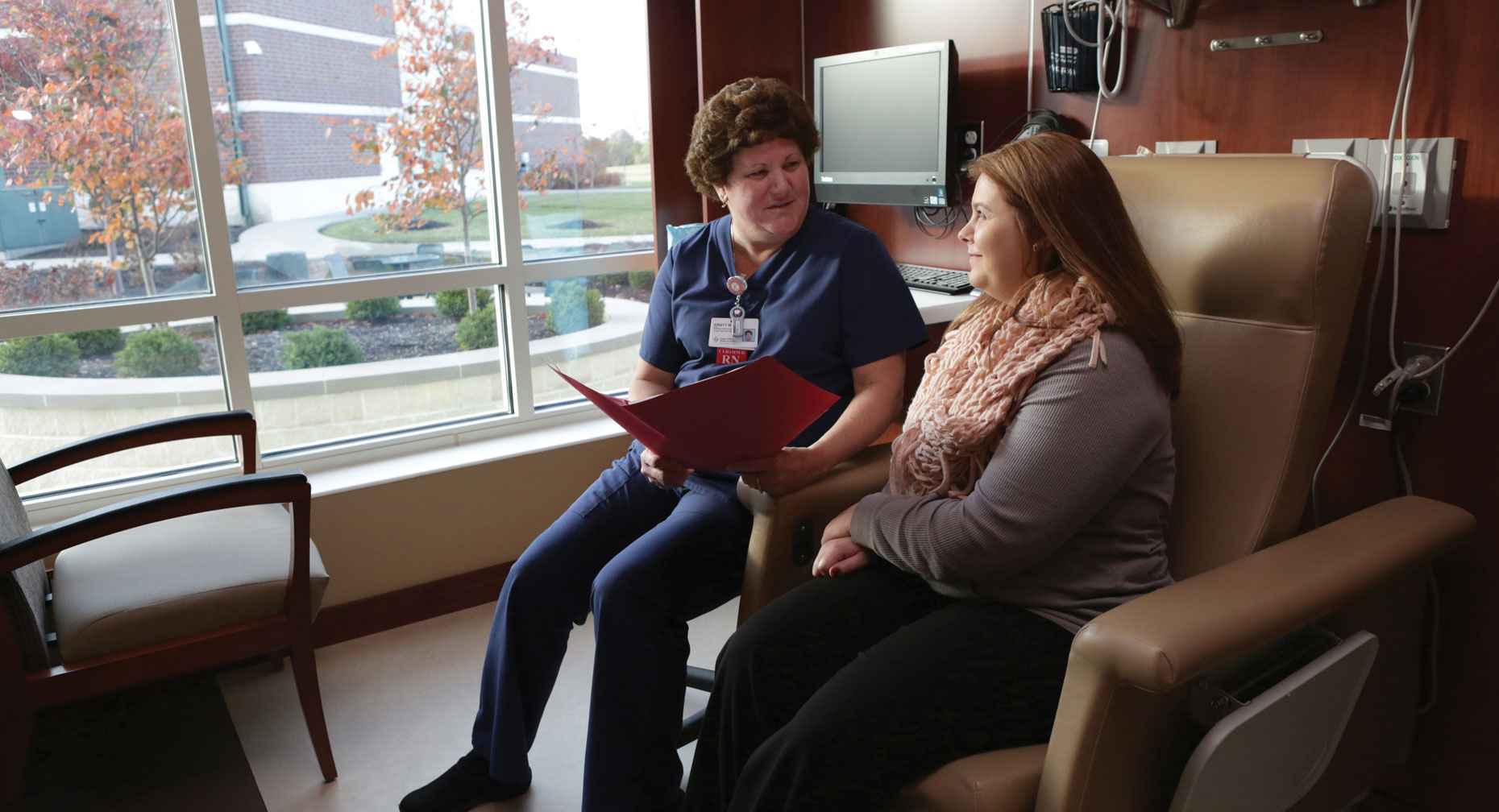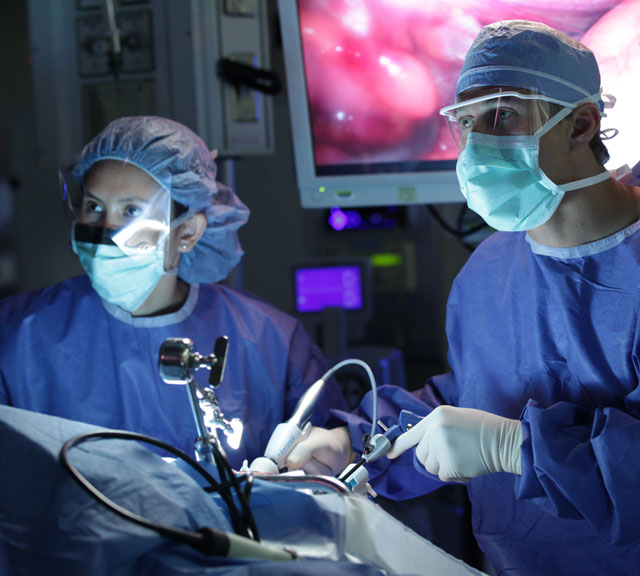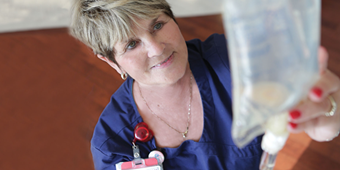Colorectal Cancer? You’ve Got Questions

Answer a few questions and we'll provide you with a list of primary care providers that best fit your needs.
As you prepare for successful colorectal cancer treatment, you should make a list of questions to ask your doctor.
It’s important to get the answers you need so that you feel informed and comfortable with your treatment plan, says James Ouellette, DO, FACS, Premier Surgical Oncology.
“Patients should ask about what to expect during treatment and during recovery,” Dr. Ouellette says.
“Patients should ask about what to expect during treatment and during recovery,” Dr. Ouellette says.
Have frank, open discussions with your cancer care team, says the American Cancer Association. And remember to keep asking questions throughout your treatment, recovery and follow-up care. This will help to ensure your best outcomes.
Consider these questions:
Questions About Your Diagnosis
- Where is the cancer located?
- Has the cancer spread beyond where it started?
- What is the cancer’s stage, and what does that mean?
- Will I need other tests before we can decide on treatment?
- Do I need to see any other doctors or health professionals?
Questions About Deciding on a Treatment Plan
 What are my treatment options?
What are my treatment options?- What do you recommend and why?
- How much experience do you have treating this type of cancer?
- Should I get a second opinion? How do I do that? Can you recommend someone?
- What would the goal of the treatment be?
- How quickly do we need to decide on treatment?
- What should I do to be ready for treatment?
- How long will treatment last? What will it be like? Where will it be done?
- What risks or side effects are there to the treatments you suggest? Are there things I can do to reduce these side effects?
- How might treatment affect my daily activities?
- What are the chances the cancer will come back with these treatment plans?
- What will we do if the treatment doesn’t work or if the cancer recurs?
- What clinical trials are available for me?
- What are the risks and possible side effects of each treatment?
- How will this treatment affect my daily life?
- What support services are available to me? To my family?
- Whom should I call with questions or problems?
- Is there anything else I should be asking?
Questions to Ask Before Surgery
- Can you describe the surgery I will be having?
- What are you planning to remove during surgery (the colon, rectum, lymph nodes)?
- Is a biopsy part of the surgery?
- How soon after surgery will I have all test results and a firm diagnosis?
- Do you think I may need a temporary or permanent colostomy?
- Is this the standard type of surgery for my condition?
- How many times have you performed this type of operation successfully?
- Who will give me information about how I should get ready for surgery and a hospital stay? How long will I be in the hospital?
- How will my pain be controlled after surgery?
- What other side effects are possible with this type of surgery?
Questions to Ask After Surgery
- What is my diagnosis based on the results of surgery and biopsy reports?
- Can you explain my pathology report (laboratory test results) to me?
- What is the chance that the cancer will come back?
- Should I watch for specific signs or symptoms?
- What is my prognosis?
- What additional treatment do you recommend? Why?
- How long will it be before I can go back to work after surgery?
- Does my diagnosis mean that my relatives have a higher risk of colorectal cancer?
- Should they talk with their doctors about screening?
Questions to Ask About Radiation, Chemotherapy or Targeted Therapy
- What is the goal of this treatment?
- How long will it take to give this treatment?
- What side effects can I expect during treatment?
- What are the possible long-term effects of having this treatment?
- What can be done to relieve the side effects?
- Do I need to change what I eat during treatment?
- Are there any limits on what I can do?
- What kind of exercise should I do, and how often?
- Can you suggest a mental health professional I can see if I start to feel overwhelmed, depressed, or distressed?
Questions to Ask After Treatment
- Do I need a special diet after treatment?
- Are there any limits on what I can do?
- What other symptoms should I watch for?
- What kind of exercise should I do now?
- What type of follow-up will I need after treatment?
- How often will I need to have follow-up exams and imaging tests?
- Will I need any blood tests?
- How will we know if the cancer has come back? What should I watch for?
- What are my options if the cancer comes back?
Questions About Planning Follow-Up Care
- What long-term side effects or late effects are possible based on the cancer treatment I received?
- What follow-up tests will I need, and how often will I need them?
- How do I get a treatment summary and survivorship care plan to keep in my personal records?
- What support services are available to me and my family?
Answer a few questions and we'll provide you with a list of primary care providers that best fit your needs.
Source: James Ouellette, DO, FACS, Premier Surgical Oncology; American Cancer Association, American Society of Clinical Oncology





